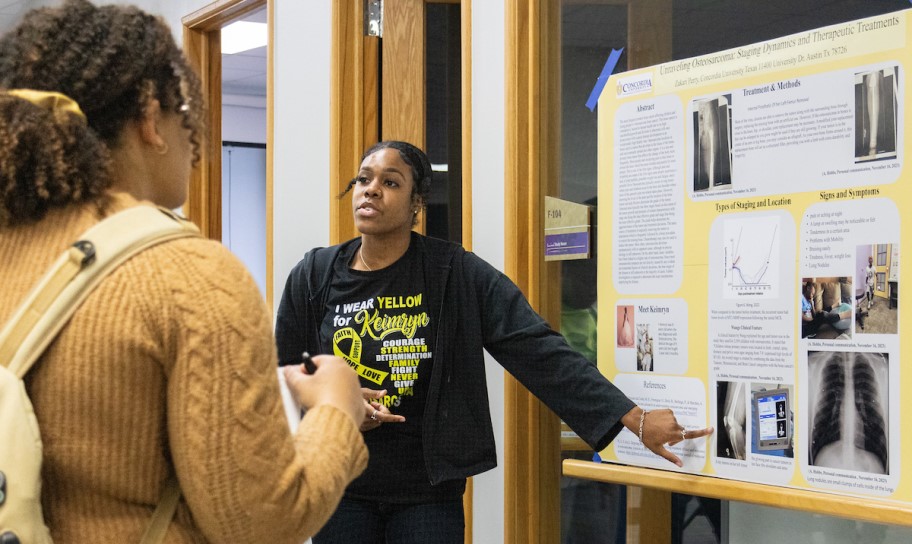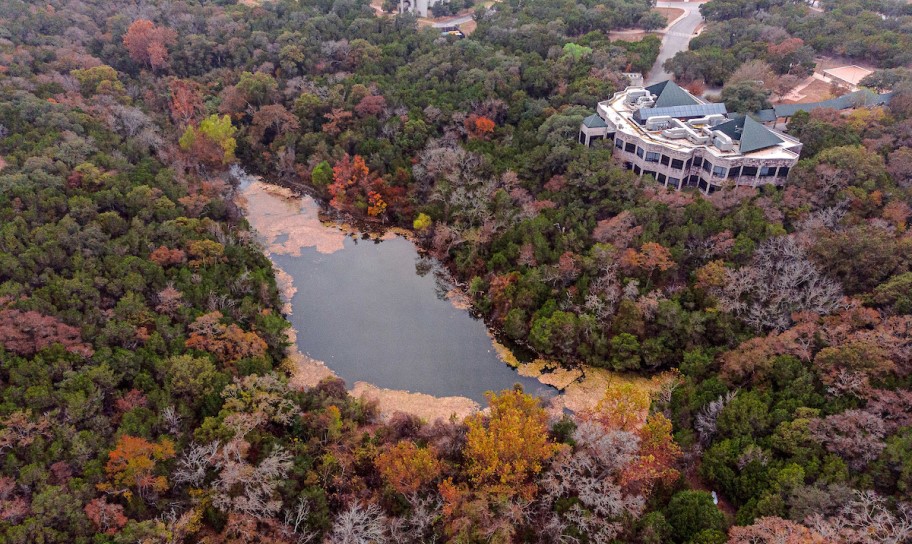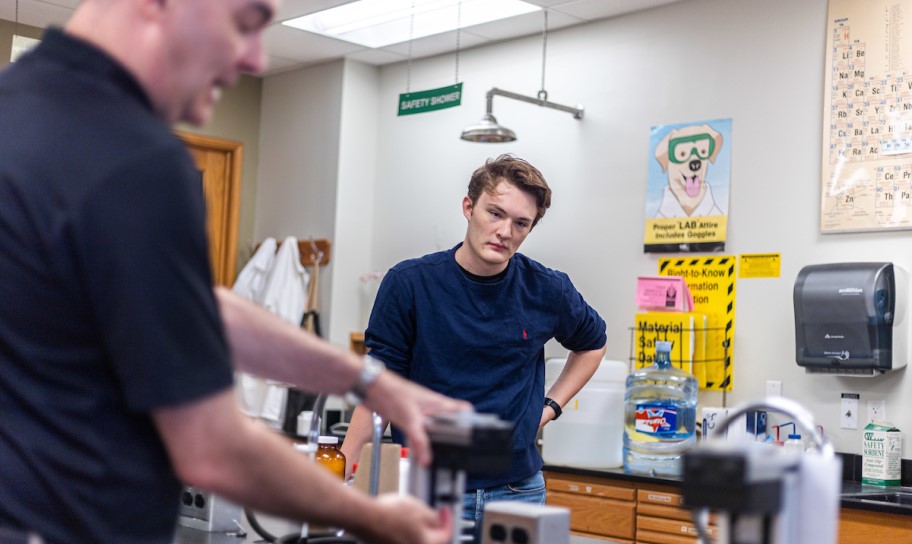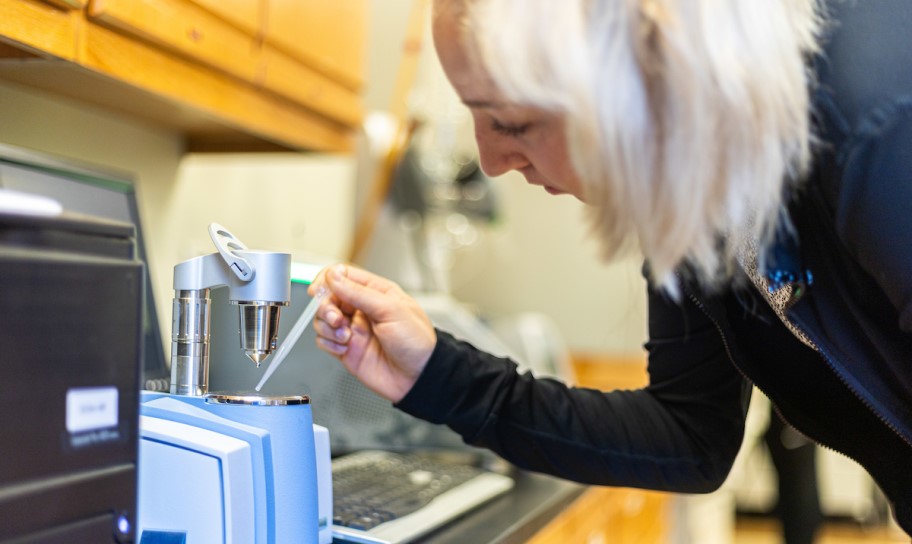Environmental Science & Conservation at Concordia University Texas
The Environmental Science and Conservation program at Concordia University Texas prepares students for a fulfilling career protecting human health and the environment. Students benefit from hands-on experiences in our nature preserve, the Balcones Canyonlands Preserve, and Friesenhahn Cave. Environmental Science majors actively manage campus resources, engage in internships, and take part in initiatives like the Citizens’ Climate Lobby, Texas Master Naturalist, and Gardening Club.
Concordia University Texas's Environmental Science program nurtures competent environmental stewards and conscientious citizens in an experience-based environment. Graduates gain practical skills through coursework and extracurricular activities, including numerous opportunities for professional certifications. The program fosters a passion for environmental work and a sense of connection to the campus and local community.

Hands-on Learning Experiences

Deep Connection to Nature
Interdisciplinary Knowledge
Join our program for hands-on experiences, a deep connection to nature, and a path to making a real impact.
Learn More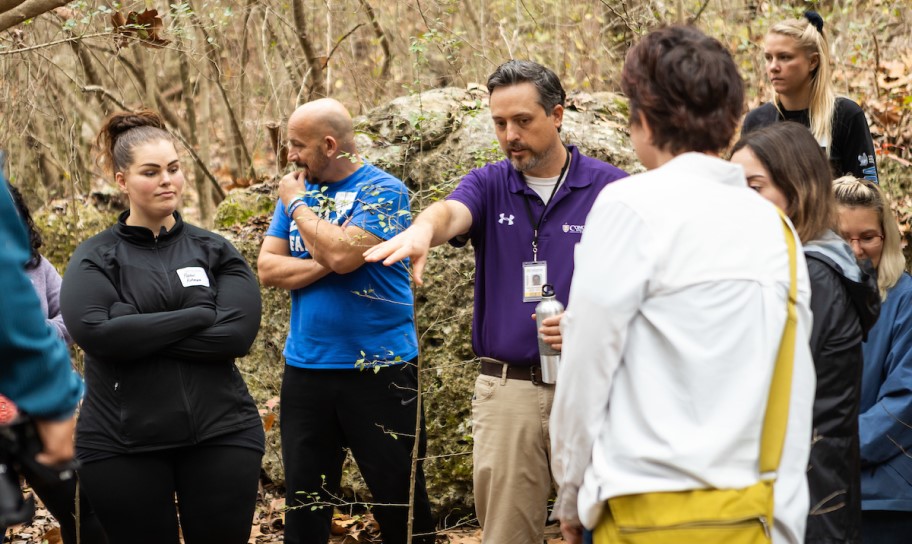
Immersive Learning
Engage in hands-on experiences on-campus and off-campus for practical application of environmental knowledge.

Nature Connection
Discover a sense of empathy and love for the environment, guided by values that extend care to every living creature.

Personalized Degree Path
Tailor your degree with customized paths, from technical skills in the BS to a flexible BA.


Students interested in environmental careers will not easily find an immersive experience comparable to the one Concordia Texas offers. Because the university protects habitat for threatened and endangered species, our campus has a wild and rustic vibe and offers students opportunities for outdoor recreation and hands-on experiences. Our program’s focus on professional development means students will build impressive resumes and an extensive network while doing meaningful work on campus and beyond. Our classes are small, project-based, and often meet outdoors, which leads to a fun and productive experience for students and faculty.
Sam WhiteheadEnvironmental Science and Conservation Chair
Turn your love for the planet into a purposeful career with the Environmental Science & Conservation program at Concordia Texas.
Apply Now- Environmental Consultant
- Environmental Educator or Interpretive Specialist
- Environmental Lawyer
- Game Warden
- Natural Resources Manager
- Park Ranger
- Recycling and Waste Management Specialist
- Renewable Energy Specialist
- Sustainability Consultant
- Water Quality Scientist
- Wildlife Biologist

Immerse yourself in hands-on environmental experiences, deepen your connection to nature, and kickstart a rewarding career. Join us in shaping a sustainable future.
Apply Now-
Can I specialize in a specific area of environmental science within the Environmental
Science and Conservation program?
Yes. The Environmental Science and Conservation program offers diverse Career Pathways, including Wildlife Biology, Ranger and Field Agent, and Environmental Law. These pathways allow you to focus your studies on specific areas of interest, providing a tailored approach to your environmental career goals.
-
Why will future employers care that I studied Environmental Science & Conservation?
The economy of the future will be low-carbon and focused on protecting and restoring natural ecosystems. As our society transitions to green technologies and sustainable systems, students with a knowledge of interdisciplinary environmental issues will be well-positioned for success.
-
How does the program prepare students for environmental careers?
The program combines theoretical knowledge with practical experiences, including internships and partnerships, ensuring students are well-equipped for successful careers in the rapidly growing environmental sciences field.
CTX Blog Posts



